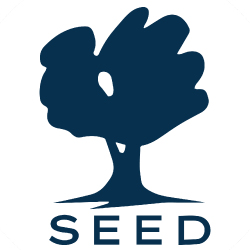The subject of mental health, stress, and wellbeing are often regarded as taboo in Kurdish culture. With the COVID-19 restriction measures, periods of lockdown that Kurdistan has endured since March, and increased economic hardship, it has become increasingly important to take care of our mental health.
In addition to adapting to remote, by phone or on-line, service delivery to continue our mental health support services for new and existing clients, SEED recognized the need to develop some online resources to help people manage stress, reduce stigma, and support the wider community.
SEED developed a series of videos in Kurdish about the importance of well-being and stress management, in addition to explaining measures of how to prevent the spread of COVID-19, including the necessity of good hygiene, and environmental and personal health practices.
Three videos were produced, (available in both Sorani and Badini dialects of Kurdish) to reach our most vulnerable clients in camps, shelters, and host communities.
The messages focus on the importance of being aware of your and your family’s mental health needs during the pandemic, tips and exercises for adults and adolescents, and advice for parenting and families struggling with lockdowns. SEED’s team disseminated the videos by phone to inform existing and potential clients of the services that SEED was providing to support people in lockdown, normalizing emotion, and providing our contact information.
The first message was to reassure people that the lockdown period during COVID-19 was exceptionally difficult and that feeling isolated, lonely, or stressed is normal, especially without the support of friends or family. It also provides advice on how to handle stress and emotions, how to support family members, or how to seek the support of a friend willing to listen.
The second message provided information about typical symptoms/emotions that someone in COVID-19 lockdown may experience, including but not limited to: fear and worry, difficulty sleeping or focusing, restlessness, increased heart rates, fatigue, or being annoyed or angered easily. We wanted to convey that it is completely natural to experience these symptoms, when a person experiences a loss of control, especially in a situation that is out of their hands. Our trained psychologists and therapists provided tips and led a calming exercise for the audience which they could repeat when they felt these emotions to help them regain a sense of calm and control.
Most people experienced lockdown at home or with family members, in the third video SEED provides basic psychoeducation for parents on children’s mental health, as well as practical parenting tips in order to better support their children. It offered ways to identify whether children were showing signs of stress or anxiety, while emphasizing that children are unique and express emotions differently.
Some of the most common signs are excessive crying, unhealthy eating, or disturbed sleep patterns, irritability or “acting out,” difficulty concentrating, and avoiding activities that they once enjoyed. SEED offered tips for healthy parenting including open communication, ensuring safety of the child, limiting exposure to news sources, and maintaining a routine. We emphasized that no parent is perfect and to be mindful of their own levels of stress.
These messages served as the basis for SEED’s mental health response in Kurdistan during the COVID-19 pandemic and were reflected in SEED’s #CopingwithCOVID19 social media campaign which in addition to mental health tips also raised awareness of the increased risk of GBV and more general health and hygiene tips.
This work was made possible under our PRM grant.
